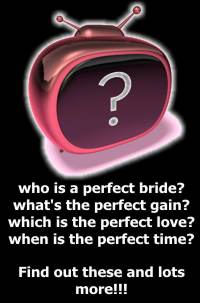
About our Knowledge base...
One definition of perfect, as an adjective, given by the new Webster‘s dictionary of the English Language (International Edition) is, “complete or correct in every way, conforming to a standard or ideal with no omissions, errors, flaws or extraneous elements”.
This definition or description presupposes that the object or subject in reference has attained the zenith (in goodness ?) in all ramifications; that is, its potentials have been fully realised, in terms of content, use or usage, etc., including its beginning or origin and its projected or predictable end, where this is possible to (assume or) know.
But is it possible to know the full capability or possibility of any thing or person? Most times, it’s assumed that everything about a subject is understood when all that is known are the not-so-important parts or a little fraction.
For something to be said to be truly without a flaw, its origin or foundation must be ultra excellent in addition to the state it is in or was in before it is or was said to be perfect.
What is the ideal? To whom is it the right standard?
A thing or person whose existence is to serve a purpose may not be said to be perfect if the objective of its being is not or can not be met.
A thing that in its application gives not the optimum output or result, even if the much that it gives or gave is/was was without omissions and error-free, can not be said to be perfect. And would there not often be external presence or influence?
For a thing, person, process, idea, act, etc to be adjudged perfect, it must be absolute, with no qualification or reservation whatsoever.
In fifteentwenty, all factors and/or everything possible or impossible, in a sane/normal society, are considered before a thing is said to be perfect.
For a human being, this will be from parentage to conception to birth to life to death and lastly, possibly, to the afterlife.
For a thing, say a manufactured product, this will be from when it (idea or concept) was conceived to its development to its production (or manufacture) to its sales and purchase (acquisition) to its use and finally, probably, to its disposal.
FIFTEENTWENTY PERFECT is, therefore in a sense, the perfectly perfect; or perfect perfection.
So, why fifteentwenty perfect? Or why try to even be perfect?
Because if we desire to aspire for a better life, or to live in a better world, we should know those elements and/or ingredients that make a good thing better, a better thing best, and in conclusion perfect.
